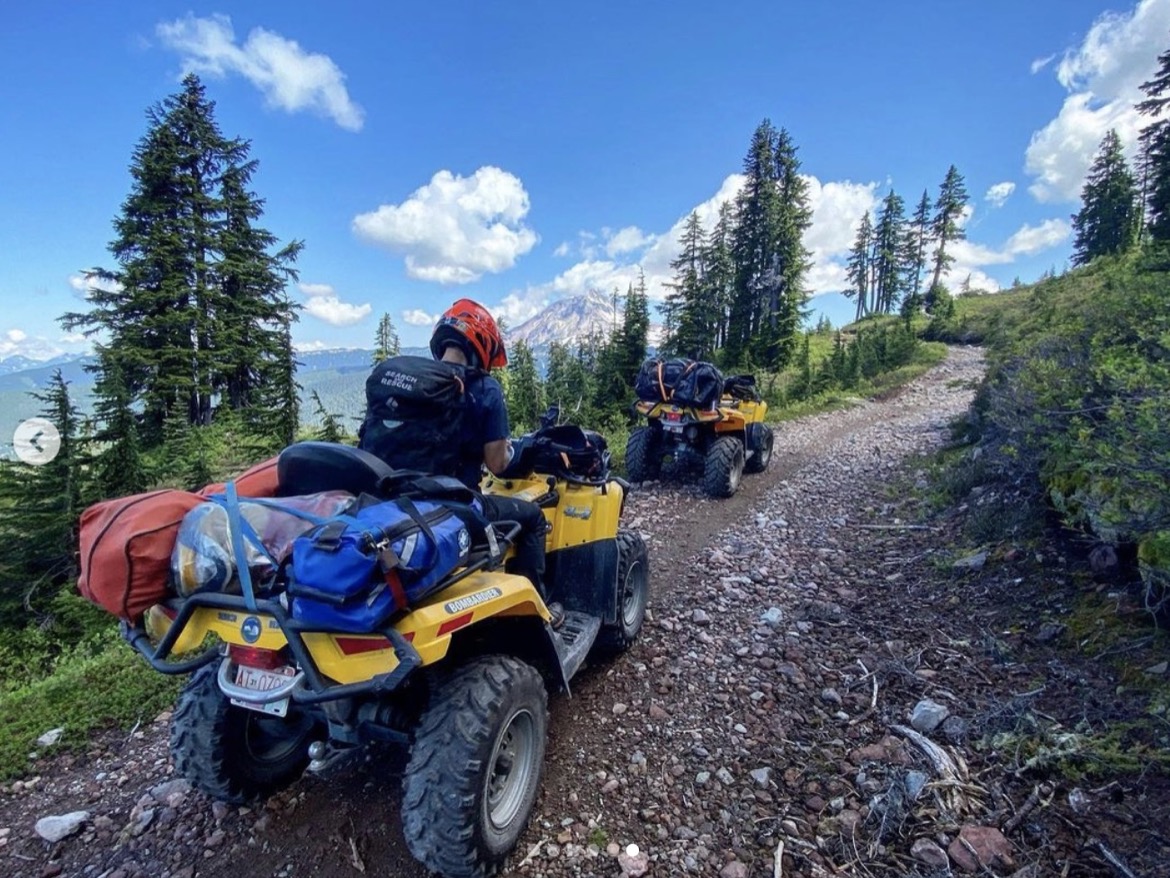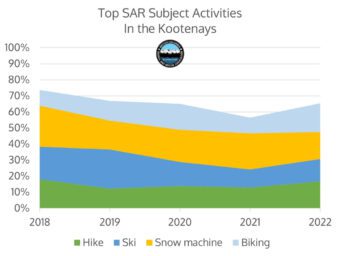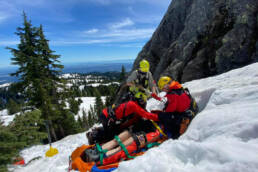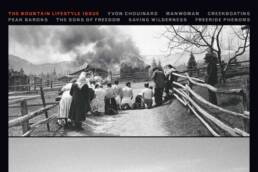Of the 78 search and rescue groups in British Columbia, those in the Lower Mainland and Okanagan are the busiest. Here’s why and how we can all mitigate tragedy in the backcountry.
You pick up the phone to ask others of their whereabouts. Do they know? Finally, one says they think they “might” have gone to a certain area but night is now falling. It’s getting cold and dark. You ask if they took a backpack with the essentials. No one is sure. The alarm bells in your head start ringing. The worry weighs heavily.
Easy access to alluring terrain often gives enthusiasts a false sense of security that can mislead hikers and backcountry adventurers into areas they’re not prepared or equipped for. Every day, people innocently misjudge their skills, gear and conditions. On average search and rescue (SAR) groups in British Columbia are called more than 1,500 times a year to assist outdoor enthusiasts. Based on data collected by the BC Search and Rescue Association (BCSARA), these incidents are primarily due to injury, getting lost or disoriented, or because the recreationalists have exceeded their abilities. Many of these SAR callouts could be prevented with a little planning and preparedness before leaving the house.

The Okanagan and the coastal regions of B.C. are two of the busiest regions for volunteer search and rescue groups in the province. Out of 78 SAR groups, the following five are the most impacted:
- Squamish SAR
- Central Okanagan SAR
- North Shore Rescue
- Chilliwack SAR
- Whistler SAR
In the winter season, Revelstoke SAR is also one of the busiest in the province. On average, the Kootenay region has 300 incidents per year, which represents 15-17% of annual SAR tasks in the province. The top four activities are hiking, biking, skiing and snowmobiling and over the past four years, there have been 100 SAR tasks for hikers in the Kootenays alone.

As freezing levels rise and the hiking season approaches, it’s a great time to think about what you can do to reduce search and rescue call volume for BC’s 3,400 SAR volunteers. Small measures like re-sealing hiking boots, refreshing emergency rations in your pack, and marking the calendar with a few anticipated adventures, can go a long way towards keeping everyone safe.
The three ingredients in all of your adventure recipes should be:
- Make a plan (the AdventureSmart trip plan app makes that easy)
- Ensure your skills and abilities match the terrain and conditions
- Carry the ‘emergency stuff’ that will make everyone’s life much better in the event of an incident. If you can reduce the severity of your incident because of the items you’ve carried with you, that is still a tremendous help for a responding SAR team.
Getting home is always the goal. The summit of that peak you’re going for is only the half-way point.

Now, imagine that your loved one or friend hasn’t returned home from a backcountry outing. As you mull over your next steps, you realize that they did tell someone where they were going and they have the essentials for an unplanned overnighter. You’re no longer as worried. Your next step is to call 911 and, before long, SAR groups will be alerted that a person is overdue. Your loved one’s efforts will ensure that a SAR team can locate them faster and that their suffering is minimized thanks to the essentials they carried with them. Here is a list of what they should have brought with them:

- Light source (headlamp, flashlight)
- Fire making kit
- Whistle or mirror (to alert SAR to your location)
- Extra food and water
- Extra clothing
- Navigational / communication aids
- First aid kit
- Emergency shelter
- Pocket knife
- Sun protection
- Seasonal and sport specific gear
To learn more about how you can become “AdventureSmart,” visit BCSARA’s outdoor education webpages featuring events, webinars, trail videos and a video library. Another great source is the BC AdventureSmart website.
– Article submitted by BC AdventureSmart
Related Stories
Kayakers Getting Loose in Lions Bay
Hilarious tag team of the infamous drainage ditch near Lions Bay, between Vancouver and Squamish. Rush Sturges and Ben…
Getting Naked With Sweetgrass Productions
Last November at Coast Mountain Culture's Backyard Booty event, the boys at Sweetgrass releases a teaser for their now…
Lost and Found in Whistler Blackcomb’s Terrain Park
For anyone whoever needed a reminder why pipe, park and urban skiing are fun as hell, here it is. Amazing work,…
BC’s Search-and-Rescue: Politics of its Costs
The latest Coast Mountain Culture Magazine article about BC's search-and-rescue program and its funding has sparked…
The Search For Freedom: Behind the Scenes
Nelson, British Columbia-based filmmaker Jon Long checks in with a look behind the curtain as he takes us through the…







